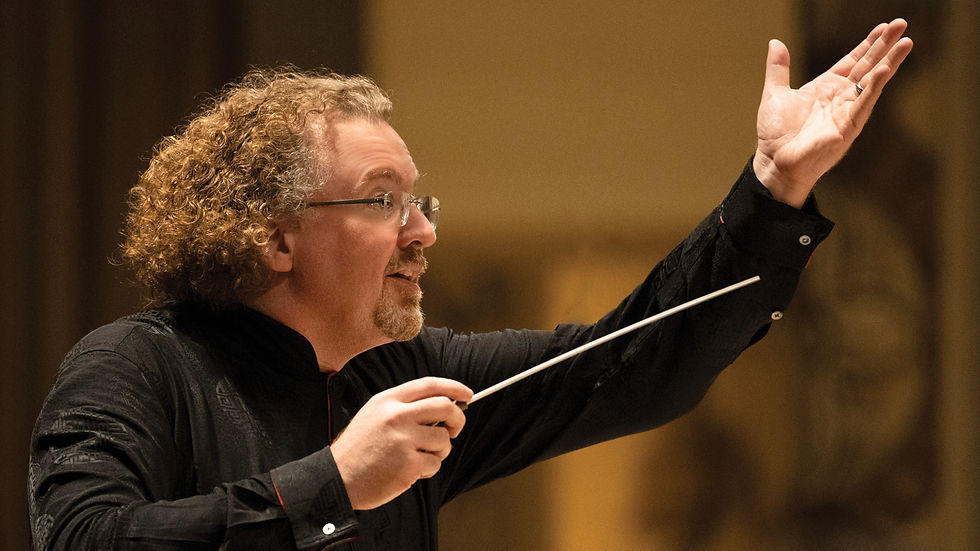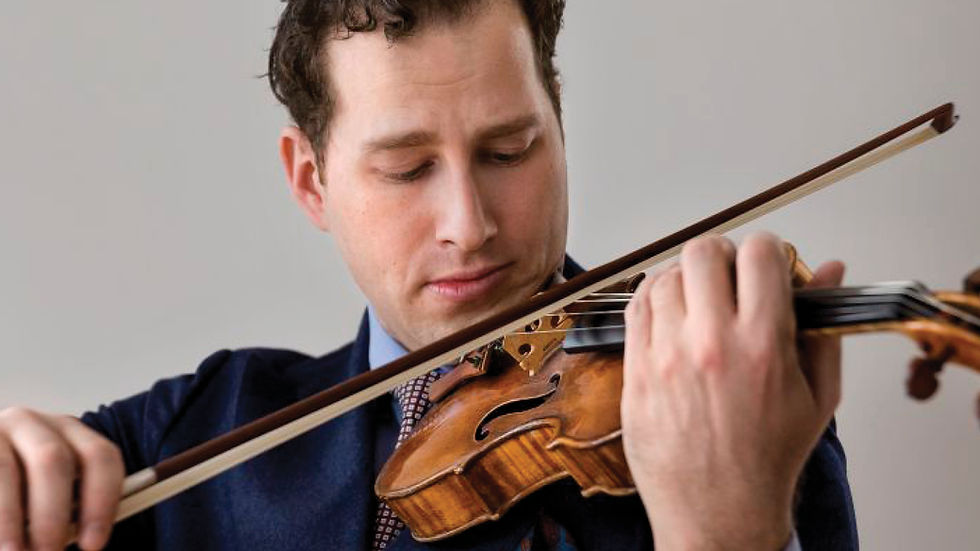Program Notes: Tchaikovsky's Souvenir de Florence
- SLSO
- Oct 23, 2020
- 4 min read
Updated: Nov 6, 2020
By Tim Munro
Wednesday, October 28, 2020 at 7:30pm
Friday, November 6, 2020 at 11:00am
Kristin Ahlstrom, violin
Ann Fink, violin
Shannon Williams, viola
Michael Casimir, viola
Melissa Brooks, cello
Bjorn Ranheim, cello
SHELLEY WASHINGTON Middleground
TCHAIKOVSKY Souvenir de Florence
Music can be a time-travel device or a teleportation machine. A chord progression might whisk you back a decade or two, to a Tuesday in April. Or the hint of a melody might bring to mind the sights and sounds of a foreign city.
Composers draw on this miraculous sound-memory, resurrecting places and people with their physical (or electronic) quills.
In Middleground, Shelley Washington takes us to her Missouri childhood, riding in a car alongside her mother as they fly past barns and corn fields. In Souvenir de Florence, Piotr Tchaikovsky creates a remembrance of a city he adored, building a piece that bursts at the seams with love and joy.
What is our role as listeners? Can we see through their eyes, smell through their noses? And will this concert create a new sense memory? In a future time, a future place, might we hear Souvenir’s opening seconds and find ourselves transported to this day in Powell Hall?

Shelley Washington
Born 1991
Middleground
Shelley Washington is a thoroughly modern musician. The composer, performer, collaborator, and educator draws on elements from jazz, rock, and American folk, new and old. “I like to write music with a big palette,” she writes. She performs as a saxophonist, mostly baritone saxophone, because “I love making lots and lots of noise.”
Washington’s music confronts social injustices. “I want to create a space for public dialogue,” she writes, “while personally reclaiming power for my own experienced inequalities. Shaking the cages, raging against the machine, and supporting others make me happy.”
Middleground is a celebration of Washington’s childhood in Missouri and Kansas. It’s a road movie in musical form, taking us in a car alongside her family and friends. Washington’s program note expresses the many-layered recollections that she poured into Middleground:
MIDDLEGROUND: the space grounded, the between, the center. The Heartland. The prairie, the grasslands, Konza, Flint Hills, Manhattan, Emporia, Salina. Where we gathered.
Home of the heart, heart of the home.
The years spent in cars, daydreaming, scooping handfuls of wheat, racing out into amber fields, cycling together, water wheel ice cream, fireworks and apples. The stories shared, books read sprawled in the yard, family prayers over anything, late evening walks, quiet nights. Open arms, open hearts, humble and extraordinary.
First performance: Spring 2016, by the JACK Quartet in New York City
First SLSO performance: April 30, 2019, at the Pulitzer Arts Foundation, Celeste Golden Boyer, violin; Erin Schreiber, violin; Shannon Williams, viola; and Bjorn Ranheim, cello
Scoring: String quartet
Performance time: Approximately 10 minutes

Piotr Ilyich Tchaikovsky
Born May 7, 1840, Votkinsk, Russia
Died November 6, 1893, Saint Petersburg, Russia
Souvenir de Florence, op. 70
Movement 1. The music comes rushing in a flood. A tempest in the lower strings tosses the first violins around like a tiny boat in a storm.
Tchaikovsky adored Italy. He spent the long, harsh Russian winter in Rome, Florence, and Venice, seduced by the warmth of the sun, the music in the streets, the beauty of the men.
“I am under a clear blue sky,” he wrote, “where the sun is shining in all its magnificence. There’s no question about rain or snow, and I go out wearing nothing but a suit … a magical shift is finally happening to me.”
By 1890, the forty-something Tchaikovsky had finally achieved international fame. He was at the peak of his powers, pouring his full emotional self into every bar he wrote, not knowing that he had just three years left to live.
In Florence, he scratched out a simple duet for violin and cello. This germ gave birth to Souvenir de Florence.
Movement 2. Hymn-like richness raises the curtain. Plucked strings—bringing to mind a lover’s serenading guitar—accompany a halting love song shared by violin and cello.
The title can mislead. In English, a “souvenir” is a physical object, kept as a reminder. In French, the word has a slightly different meaning. Souvenir is closer to “remembrance,” to “memory.”
Tchaikovsky found the relatively unusual form—two violins, two violas, two cellos— challenging. “There must be six independent and at the same time homogeneous parts,” he wrote. “It is frightfully difficult!”
His finished work balances these opposing forces: filling the hall with the weight of a much larger ensemble, each musician is pushed to play with the boldness of a soloist. Tchiakovsky’s music pulses with intensity, allowing no real moment of rest for any of the players.
Movement 3. A humble viola sings a simple folksong to the ensemble, who take it and turn the screw of intensity.
Tchaikovsky’s mother tongue is never far away. “Italy is beginning to cast her magic spell on me,” he wrote on one early trip. “But in spite of the enjoyments of life in Italy, in spite of the good effect it has upon me—I am, and shall ever be, faithful to my Russia.”
Movement 4. The ensemble lets its hair down to a Slavonic beat, players sharing melodies in conceivable combination of solo, duo, and trio.
Tchaikovsky’s verdict on his work? “It's frightening to see,” he wrote, “how pleased I am with myself.”
First performance: December 1890, in a private concert in St. Petersburg
First SLSO performance: October 20, 1999, George Silfies conducting; Vadim Repin, violin; Amy Oshiro, violin; Susan Gordon, viola; Thomas Dumm, viola; Ilya Finkelshteyn, cello; David Kim, cello
Scoring: String sextet (2 violins, 2 violas, and 2 cellos)
Performance time: Approximately 34 minutes
Tim Munro is the St. Louis Symphony Orchestra’s Creative Partner. A writer, broadcaster, and Grammy-winning flutist, he lives in Chicago with his wife, son, and badly-behaved orange cat.




Comments